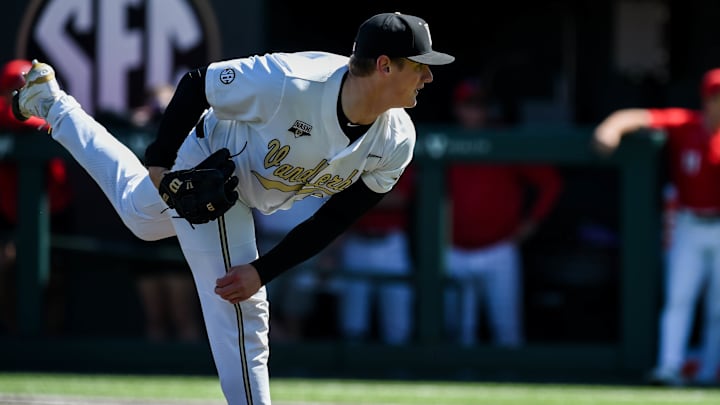One player the Mets will draft with their first-round pick: Hunter Owen
Vanderbilt University left-handed pitcher Hunter Owen looks like a potential top-10 pick pitcher due to his control and dominance on the mound. Owen is a tall pitcher weighing 261 pounds, making him one of the most physically imposing and advanced pitchers in this class.
Owen's signature pitch is his slider, which is projected to be above average in MLB. His fastball, which can touch 97 mph, stays consistently in the low 90s with flat movement.
Vanderbilt LHP Hunter Owen is a name to write down. Spent last season in the bullpen in a multi-inning role, but in the rotation this season he's cooking. Big 6-6, 260-lb southpaw. Can grab 97 with a disgusting slider. Up to 28 K in 23 IP. Potential riser.pic.twitter.com/UgUgkyZAto
— Joe Doyle (@JoeDoyleMiLB) March 18, 2023
The most striking and important aspect of Owen is his delivery and control. The Vanderbilt lefty throws consistently in the strike zone, and his arm action and body movement need no adjustment or correction.
Owen was his state's top prospect in 2020 but chose to go to college and mature as a pitcher. However, this pitcher has shown tiredness in his throwing arm in recent seasons, which questions whether he can be a long-term starter in the long run.
The Mets can see Hunter Owen as a fast-growing pitcher in their farm system capable of quickly moving up to MLB. Due to his condition as a left-handed pitcher, the Mets would be selecting a great promise of this draft capable of being the No. 2 or No. 3 starter in MLB if he works on his durability.
